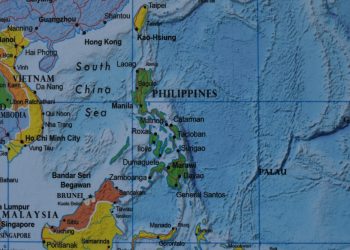A joint researched program by UK and US research program was launched at Monday, 30 April, called Thwaites Glacier Collaboration (ITGC). The program will focus on the Thwaites Glacier in West Antarctica, which can significantly affect global sea levels.
The glacier drains an area roughly the size of Britain or the US state of Florida, accounting for around 4% of global sea level rise, an amount that has doubled since the mid-1990s.
As part of a new £20 million research collaboration, the UK Natural Environment Research Council and the US National Science Foundation will deploy scientists to gather data to understand if the glacier’s collapse could begin in the next few decades or centuries.
[smlsubform prepend=”GET THE SAFETY4SEA IN YOUR INBOX!” showname=false emailtxt=”” emailholder=”Enter your email address” showsubmit=true submittxt=”Submit” jsthanks=false thankyou=”Thank you for subscribing to our mailing list”]
The science programme will begins in October 2018 and will last until 2021. The funding is for eight research projects and a co-ordination grant to maximise success.
The science activities and information gathered will be passed through several outreach and media-aimed efforts in the UK and US, and with websites and blogs. The data gathered by ITGC will be archived and freely shared at the end of the program to help future understanding of the area.
Antarctica’s glaciers contribute to sea level rise when more ice is lost to the ocean than is replaced by snow. To understand the causes of changes in ice flow the programme will deploy the most up-to-date instruments and techniques available.
NERC’s Chief Executive, Professor Duncan Wingham, stated:
The fate of the Thwaites Glacier is one the big unknowns in Antarctic science. We currently do not know enough about the likelihood, timing and magnitude of the collapse of West Antarctic glaciers such as Thwaites for countries to be able to plan accordingly. NERC and NSF, working together, are uniquely placed to attempt to reduce the scientific uncertainty about these unknowns, providing answers to one of the most important questions facing us about global sea-level rise.

































































